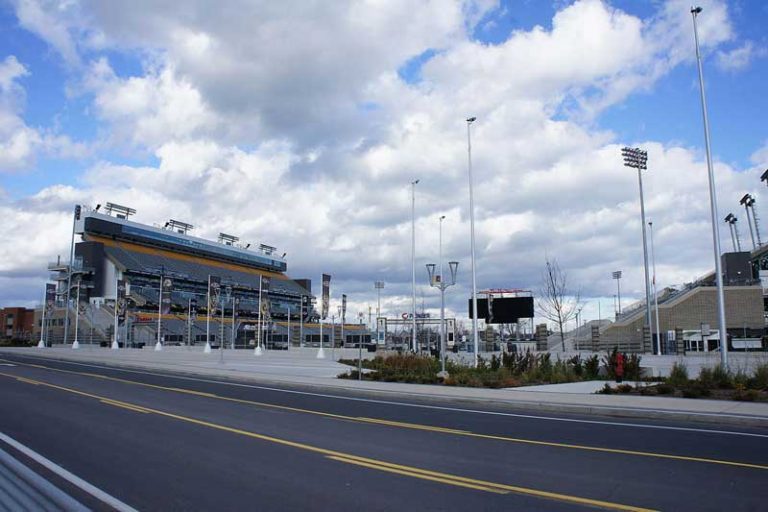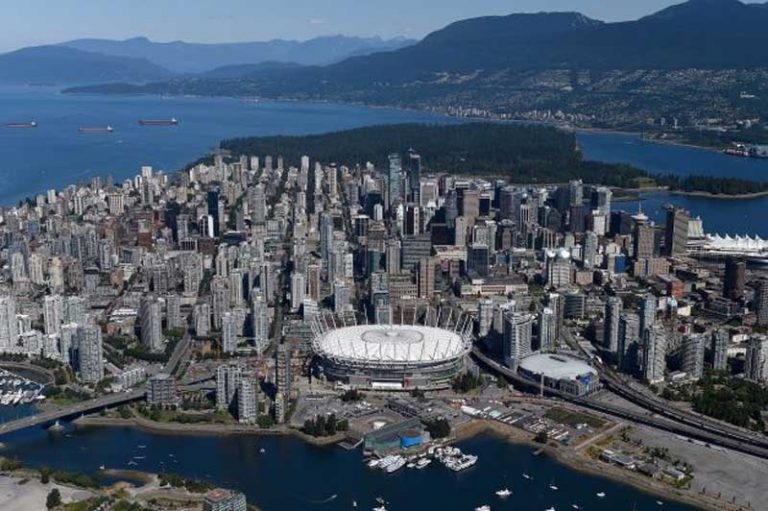The four First Nations of British Columbia’s Sea-to-Sky Region that includes the City of Vancouver and the Municipality of Whistler will front a possible Vancouver 2030 Olympic Winter Games bid after the signing of an historic memorandum of understanding on Friday.

Chiefs of the Tsleil-Waututh, Squamish, Musqueam and Líl̓wat Nations will lead the project, marking what organizers describe as the first Indigenous-led bid in Olympic history. Vancouver and Whistler signed on as partners in a Host Nations Exploratory Assembly formed to explore the feasibility of hosting the Winter Games for a second time on the First Nations’ traditional land.
The same First Nations also contributed to the success of the Vancouver 2010 Games.
Canadian Olympic Committee (COC) President Tricia Smith described the concept as “focused on reconciliation through respect, inclusivity, and community – a Games concept that can be a vehicle for transformative change.”
The COC will now work directly with the First Nations to determine the feasibility of plans, and could form a bid committee as soon as next Spring following the Beijing Olympic Winter Games. The project aligns with the COC’s commitment to the Truth and Reconciliation Commission of Canada’s Call to Action and for reconciliation through sport.
“The COC and CPC look forward to working on our own Collaboration Agreement with the four First Nations in the coming weeks,” Smith said in a statement.
“It is an opportunity to announce to the world that we are not invisible, we are still here and will always be here,“ Squamish Nation Councilor and spokesperson Wilson Williams said.
Vancouver mayor Kennedy Stewart, after his City Council was split over support for an Olympic bid, said last year that he would not pursue an Olympic Games that was not led by First Nations. On Friday he made good on his assertion by positioning the partnership as the First Nations inviting Vancouver and Whistler to participate.
Stewart said there have already been “positive” discussions with both provincial and federal governments.
Vancouver 2010 Chief John Furlong, who has been pitching a new bid for the Games since last year’s 10th anniversary of the first Games said in November “First Nations businesses and tourism are all legacies that started just before 2010 and it is a difference-maker for the story that we have to tell the IOC.”
A Vancouver 2030 Olympic bid launched now would have to overcome some significant hurdles including making up ground lost to rival projects that have already been in the works for years and have been involved in the International Olympic Committee’s (IOC) continuous dialogue phase of a new bid process.
Leaders of the Salt Lake City Olympic bid, also pursuing a second Games for their city, met with International Olympic Committee (IOC) President Thomas Bach Monday and the influential Future Host Commission last month. On Thursday Bach told GamesBids.com that the bid leadership, organized for over two years, “were very well prepared, they were very well informed.”
Bach also said he was impressed with the “great unity and enthusiasm” among stakeholders in Utah.
The United States Olympic and Paralympic Committee (USOPC) however have yet to decide whether they want to host in 2030, or 2034. They will send a small delegation to the Beijing 2022 Winter Games to observe and will meet at IOC headquarters in the spring.
A bid from Sapporo in Japan is also well-developed, and last month released preliminary plans that showed a significant cost-savings over initial high-level estimates that were produced before the IOC implemented new cost-cutting measures for Olympic Games.
A joint project from Pyrenees-Barcelona in Spain has also been in planning stages for several years but has been struggling with regional infighting and will likely face a contentious referendum next year. Ukraine announced its interest this year and is in very early stages of development.
Furlong told Postmedia Thursday “there is a detailed process underway led by the Canadian Olympic Committee that is quite advanced that includes multiple B.C. communities and others.”
Poor public support is another hurdle challenging the Canadian bid with an October poll showing only 43 percent across British Columbia behind plans to host the Games for a second time.
Due to the planned use of existing facilities left as a legacy of the 2010 Games, Furlong said he believes the B.C. based Games can be financed privately, without the use of taxpayer dollars. But according to recent polling, constituents remain skeptical with 55 percent saying such a scenario is “impossible.”
Should federal government funding be required, including for what could be a massive security budget, a bid from British Columbia could have to compete with the City of Hamilton in Ontario now bidding to host the 2030 Commonwealth Games. It is unlikely that Ottawa would approve both projects in the same year.
There is no set timeline for the awarding of the 2030 Winter Games. The IOC Future Host Commission will select a preferred candidate for Executive Board endorsement and membership approval once the right partnership is found.
Milan and Cortina in Italy will jointly host the 2026 Winter Games at venues across Northern Italy.


